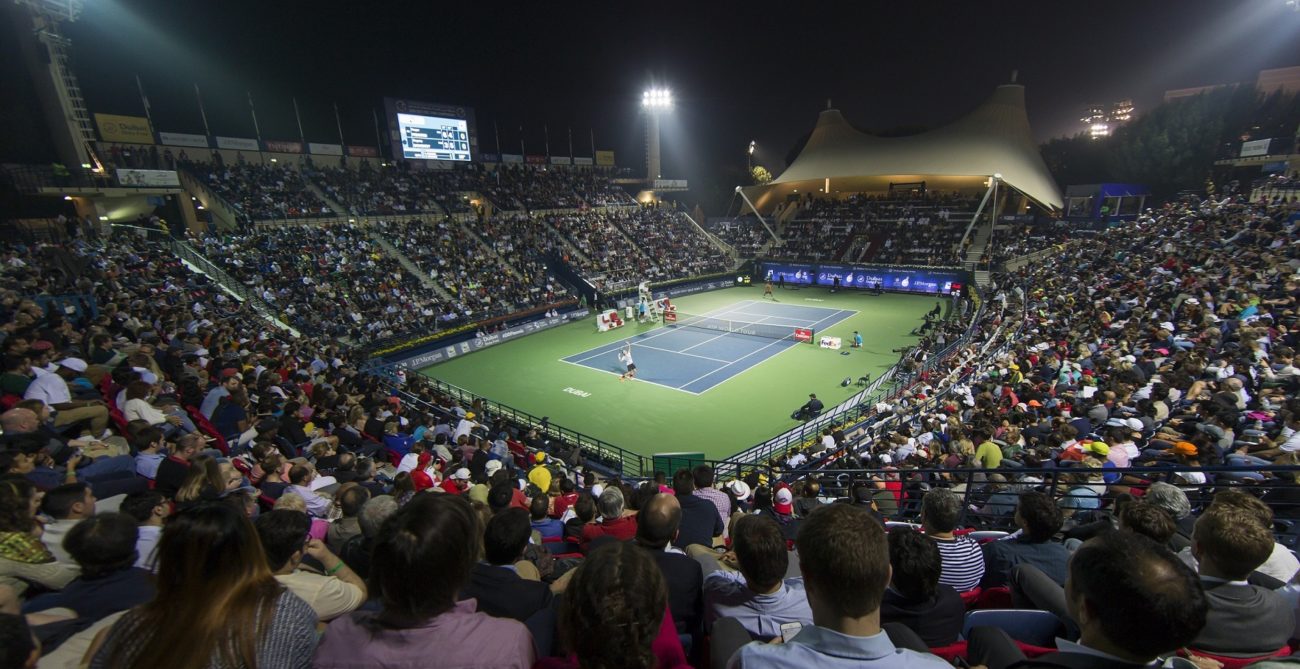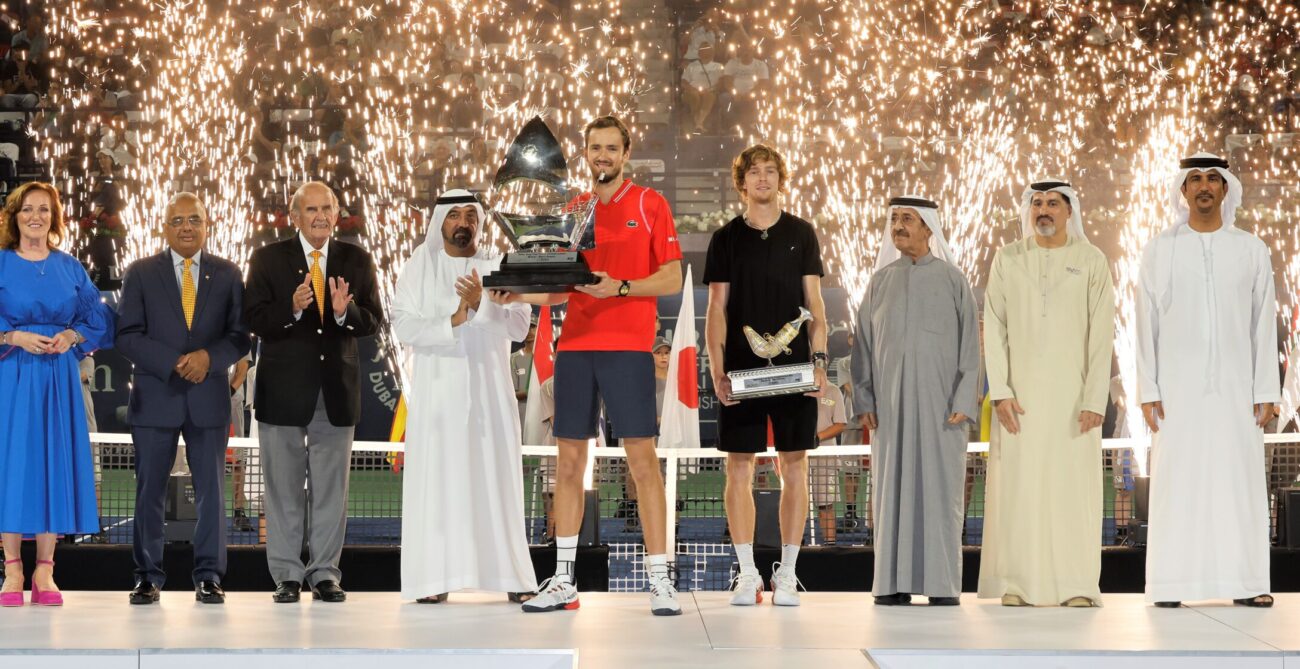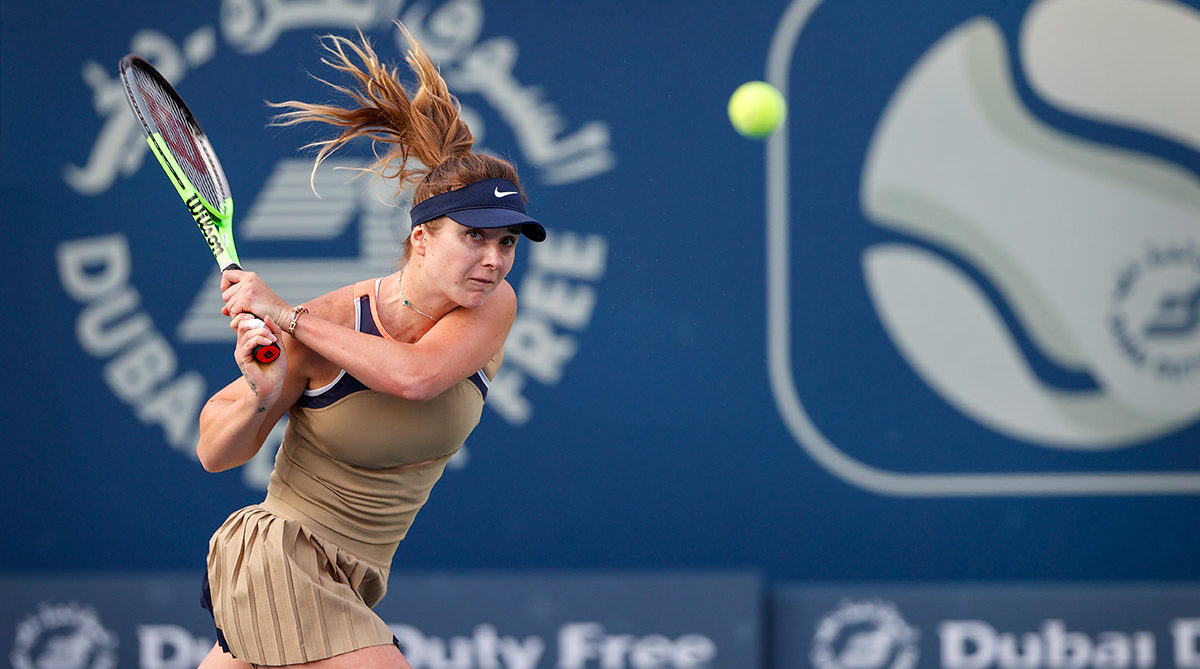Ekaterina Makarova – Press Conference
THE MODERATOR: Questions, please.
Q. How did you do that?
EKATERINA MAKAROVA: Well, it was a tough match again against Domi. Like always, we have, most of them, three sets.
I started really good with aggressive tennis, but in the second set, I don’t know, maybe I started to think a lot about that I’m playing so good or she’s missing too much. I knew that she is a fighter and she will never give up, and she will fight and run and hit.
And then, yeah, it was a little bit up and down in the second set. When I did the 4-All, it was not the best two games after 4-All. I was really upset and was losing 2-Love, 30-Love on her serve. But then I just tried to forget all games, all bad points, and just try to hit and play my game.
It was working really good after that thought (smiling).
Q. So what did you do particularly well today?
EKATERINA MAKAROVA: Well, I was serving really good. In the important moments, I had good returns.
When I’m kind of staying close to the baseline, I play much more aggressive than I’m coming back a little bit.
Q. How much did it help having beaten Dominika at the Australian Open?
EKATERINA MAKAROVA: Well, it helped a lot, of course, because I never beat her before. So this match, when I was coming out and I kind of more believing that I can win, and I knew what to do, how to play, where to go, yeah, I was kind of staying until the end that I was believing that I can beat her.
Q. How much easier is it for you these days to find that kind of relaxation on the court? It seems like in the past you might get a little too tense in this situation. Seems like you have been able to stay calmer.
EKATERINA MAKAROVA: Oh, well, yes. Actually, I realized that by myself. Just during the practice, I’m start to — like I watched my photos during the matches, and I realized, just at my apartment when I was coming through, and I saw the picture when I was playing, and my face was quite relaxed.
And then I started to watch my last pictures, and it’s so ugly (smiling). So in that moment, I realized that I’m so kind of stressed and so tight during my hits.
Then I went to my practice, and I start to feel it that I’m so tight. I’m just try to relax, to remember those kind of shots. I, a little bit, practiced it during my Fed Cup last weekend, and, yeah, it’s I think a little bit helping me out.
Q. When did you notice that? When did you see that picture, those photographs?
EKATERINA MAKAROVA: Just before the Fed Cup on the practice week.
Q. I think it’s fair to say that you have had an up-and-down career in singles, at least. Would you be looking for consistency? You have been up in the top 10, been way, way down, kind of coming up again. Are you looking for more consistency?
EKATERINA MAKAROVA: Yes, I want to be more consistent. But, well, I will say that I’m not really too up and down. For couple years I was, like, 20, 21, 22. Then, yes, I reached the top 10, and I think my head didn’t expect this. It was too much press, too much, I don’t know, other things.
I just wanted to close, you know, myself. I didn’t like that kind of moments.
But of course when you are playing worse a little bit you want to come back (smiling). So, yeah, last year I was putting everything for gold medal. I was expect that it could be something happen with my singles ranking, because my dream was just to win the gold medal and that’s it.
Like before, after London, I was telling to my coach, I will play Rio and then I finish to play tennis. I just want the gold medal and nothing else.
But when it’s happened, you know, I’m feel, well, I’m not too tired of it. I still want to keep playing.
That’s why, yeah, maybe I’m now realized that I need to relax a little bit.
Q. The Olympics so important, hugely important to the Russians.
EKATERINA MAKAROVA: Yes.
Q. How do you feel about all the controversy there has been about Russian sport?
EKATERINA MAKAROVA: Well, I think it’s not the Russian sports. It’s just the Russian politics with all the world, you know, that everyone is against us. Maybe we do some not very good things, but still, I think the sportsmen is not that people who needs to do like the doping, you know, not to go to the Olympics games like athletics and other sports, and now with the skiing, with the biathlon, it’s so bad things.
But, well, the Russians, always something happen with the Russian. We are fighting, and I think we are just strongest people in the world, yeah, because we — I don’t know. We just need to survive in our country, and sometimes it’s a lot of things that — so we are so hard inside.
Q. Did you literally arrive in Rio saying to yourself, If I win a gold, this is the last tournament for me? Or did you know before you got there?
EKATERINA MAKAROVA: Well, I didn’t know that I will win.
Q. No, but did you have it in your mind, if I win, this is the end and I’m done?
EKATERINA MAKAROVA: No. Yeah.
Q. You said that you really wanted to win the gold. Obviously it is a big honor to win the gold. But is there any other reason why you might have wanted to win it? Any different motivation?
EKATERINA MAKAROVA: No, because in Russia, it’s, yeah, like you said already, that it’s a very big thing in Russia. We get a lot of money and we get a lot of — we get the car from the president, you know. Not other countries will get this.
And when you are Olympic champion, you can be in your country, wherever you want to go, they will let you go, because it’s a very big status in Russia.
Yeah, it’s a big honor to be — so maybe from the kids and we know about this and everything, and we watching the Olympics games, and I was always wanted to win more Olympic medal, gold medal, than the Grand Slam even, yeah.
Q. What kind of car did you get?
EKATERINA MAKAROVA: BMW X6 for gold. X5 for silver. X4 for bronze. Yes. (Smiling.)
Q. What was it like being kind of the oldest, you know, on the Fed Cup team —
EKATERINA MAKAROVA: Yeah.
Q. — all the young kids looking up to you? What was that experience?
EKATERINA MAKAROVA: Yeah, that was the first experience for me, because every time when I’m playing I’m playing with Sveta Kuznetsova or it was before Zvonareva or even Elena Vesnina. I’m like always younger person in the team.
But this time it was nine years’ difference. So I’m not that person who will teach and know them, but in that situation I knew that I need to teach them what to do, how to do, and always telling them, like, which the suits we are wearing, you know, because they are just — doesn’t matter what is happening. And then during the matches, you know, like support them differently. Two girls was even debut in team.
So it was totally different team and situation. But we were playing on the stadium where I was starting to play tennis, and I was practicing there 12 years. Now, in February, it’s closing and they will get the construction. So it will be totally different building.
And in that stadium when I was young and we were running around, you know, and, like, I was thinking, oh, well, a lot of sports was going there but no tennis, and I’m, like, why we don’t play there? I want to be there. I want to play there one time.
And when they decided to play on that stadium, I just wanted, because it was my dream from juniors, and it was my kind of second house. I knew every room and everything.
So I was so much enjoying to play on that stadium.













